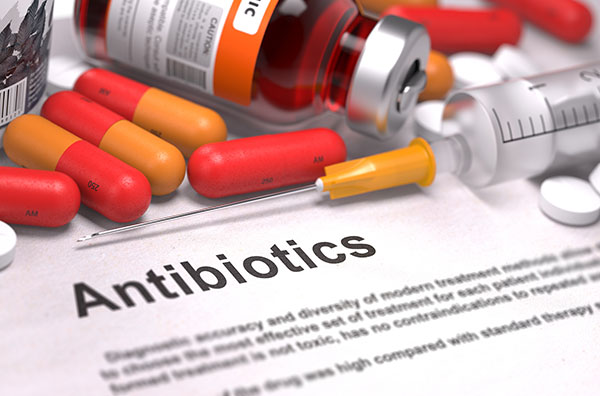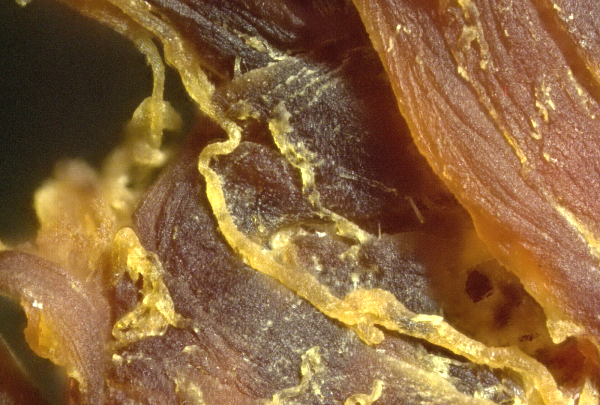 Parler
Parler Gab
Gab
- Even short-term antibiotic use permanently alters gut microbiomes, fostering antibiotic-resistant bacteria that persist for years.
- Countries with high antibiotic sales harbor populations with significantly more drug-resistant gut microbes, even in non-users.
- Early-life antibiotic exposure reduces gut biodiversity irreversibly, destabilizing microbiome networks for life.
- Bacteria evolve resistance without losing fitness, making them a persistent global health threat.
- Probiotics, avoiding unnecessary antibiotics, and natural antimicrobials can mitigate risks.
How resistance thrives: Evolution in fast-forward
Bacteria deploy four main strategies to outlive antibiotics: intrinsic resistance (heritable traits), genetic mutations, borrowed DNA from other resistant organisms and horizontal gene transfer. A Nature-funded study tracked 60 participants taking ciprofloxacin, revealing a stark reality: within days, bacteria like Escherichia coli mutated their gyrA gene. This alteration neutralized the drug’s lethality while sparing bacterial fitness — a “no cost, high gain” adaptation. Lead researcher Dr. Mark Smith etched the implications: “These mutations persist beyond 10 weeks, predictably clinging to dominant bacteria populations. The microbiome becomes a resistance reservoir, risking future cross-species contamination.” Worse, the gyrA mutation spread across 34 participants’ species, showing resistance can evolve independently in unrelated germs.A nation’s pill habit impacts every gut
A parallel study in Nature Communications underscored how national antibiotic policies determine individual risk. Analyzing global gut microbiomes, researchers found stark divides: residents of high-consumption nations like Italy held four times the resistance genes of peers in Denmark. “Antibiotics shape entire ecosystems,” explained co-author Dr. Elena Vazquez. “Even visitors to high-use countries return with augmented resistance, spreading contagion back home.” The study also warned of lingering “generational tolls.” Drops in antibiotic sales — like in Spain post-2015 reforms — showed no rapid microbiome recovery. “Resistance genes embed into commensal bacteria, surviving long after prescriptions fade,” the authors stated. This ecological memory ensures communities pay future health debts from past medical choices.Childhood courses cast a lifetime shadow
Animal trials detailed in Microbiome highlighted irreversible harm from early antibiotic exposure: ceftriaxone administered to four-week-olds caused 14-month deletions in microbial diversity and keystone species like Akkermansia. These “structural architects” of gut health never rebounded. “The microbial web frays permanently,” the study’s team of researchers noted. With human microbiomes maturing by 2-3 years old, childhood antibiotics may launch lifelong immune and metabolic disruptions.Protecting your microbiome: Practical steps
- Minor infections often resolve without drugs. Challenge doctors to distinguish viral vs. bacterial causes.
- Fermented foods (sauerkraut, kimchi) daily replenish beneficial species — no synthetic supplements required.
- Swap vegetable oils for olive oil or butter to reduce gut inflammation and resistance-promoting environments.
- Garlic, honey and ginger possess proven antimicrobial properties without promoting resistance.
Antibiotics as double-edged swords
The microbiome’s fragility demands a paradigm shift. “We’ve treated antibiotics as convenience tools,” said Dr. Mercola, but their legacy outlives the prescription. As global resistance claims over 1.27 million lives annually, personal and policy vigilance is non-negotiable. “Every pill is a vote for germs’ survival. Respect that power,” Dr. Mercola urged. Only through mindful use and microbiome stewardship can we avert a future where even basic infections reignite mass mortality. For additional resources on managing antibiotic resistance, visit the CDC’s antimicrobial resistance overview. Sources for this article include: ChildrensHealthDefense.org CDC.gov MedicalXpress.comGinseng’s dual power: Relieving stress and improving exercise recovery
By Evangelyn Rodriguez // Share
Turmeric compound reduces post-bypass heart attack risk 56%
By News Editors // Share
The hidden risks of disodium pyrophosphate in cosmetics and its impact on health
By Zoey Sky // Share
Governments continue to obscure COVID-19 vaccine data amid rising concerns over excess deaths
By patricklewis // Share
Tech giant Microsoft backs EXTINCTION with its support of carbon capture programs
By ramontomeydw // Share
Germany to resume arms exports to Israel despite repeated ceasefire violations
By isabelle // Share










